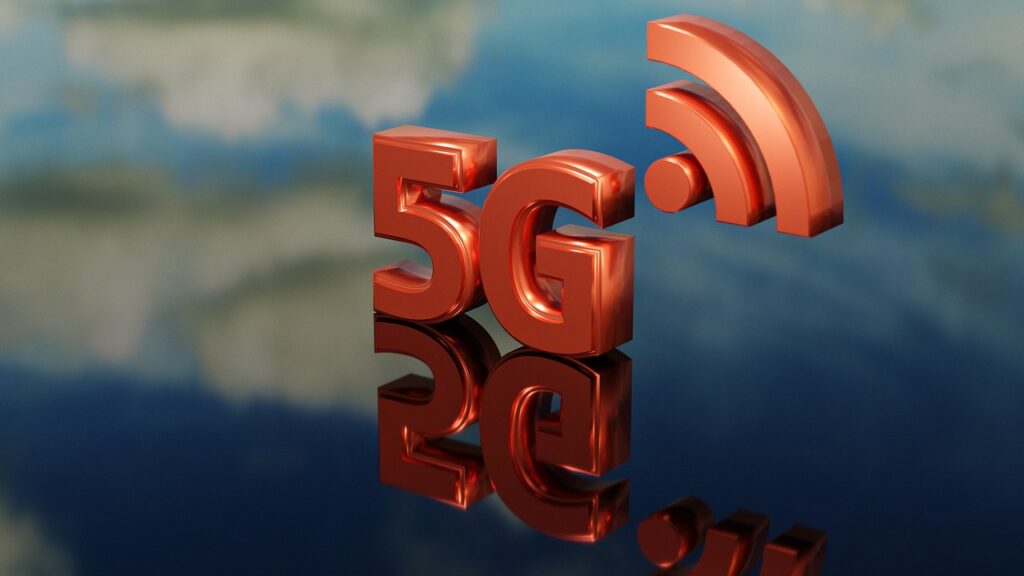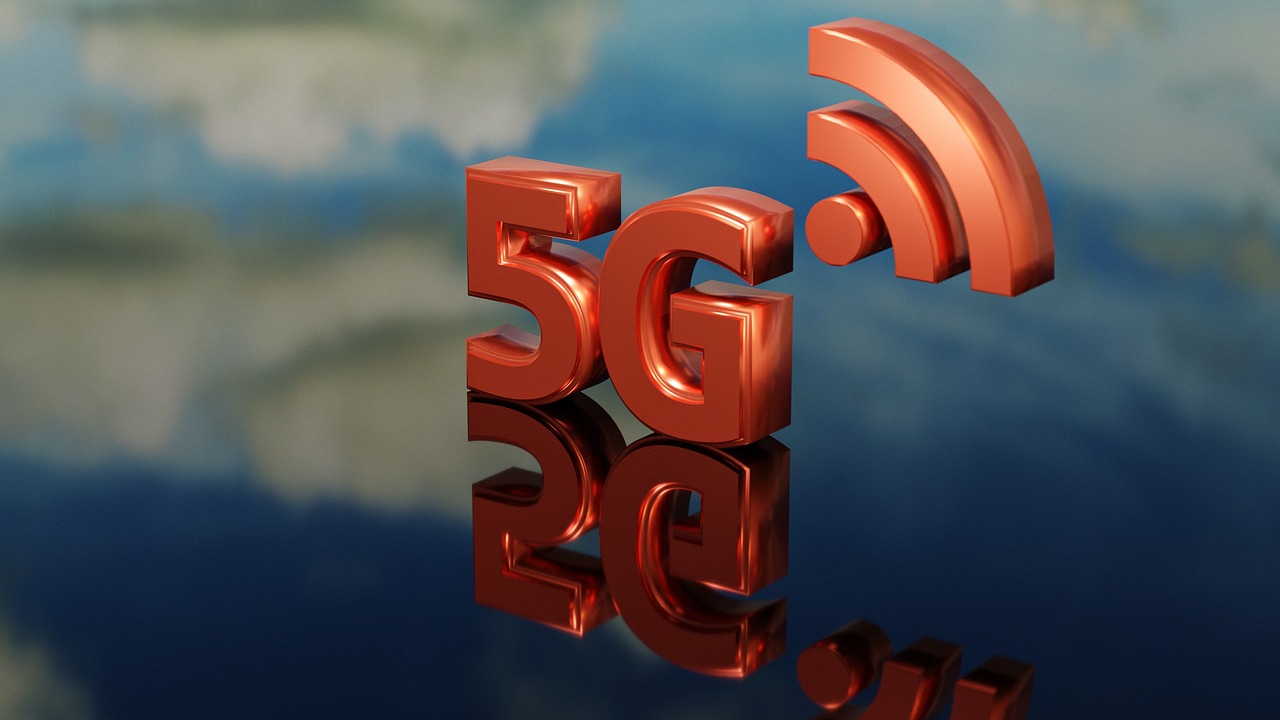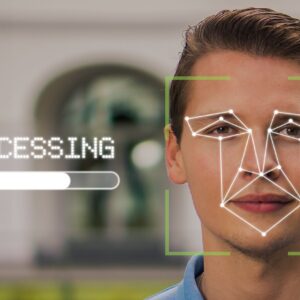Are you ready to experience the power of 5G technology? It’s the newest and most advanced wireless communication technology that will change the way we live, work, and play.
With unprecedented speeds and ultra-low latency, 5G technology will enable a wide range of applications that were not possible before. From autonomous vehicles to remote surgery, 5G technology will revolutionize the way we interact with technology and each other.
You may be wondering, how does 5G technology work? It uses a combination of advanced hardware and software to transmit data at lightning-fast speeds. Unlike 4G technology, which uses radio waves to transmit data, 5G technology uses millimeter waves that can carry more data at faster speeds. These millimeter waves require more antennas, which is why you may have noticed more cell towers being built in your area.
With the power of 5G technology, you can expect to download movies in seconds, experience virtual reality in real-time, and connect with people from all over the world with ease.
Are you excited to learn more about the advantages, challenges, and impact of 5G technology? Let’s dive in!
What is 5G Technology and How Does it Work?
Let’s dive into what 5G is and how it operates.
5G technology is the latest and most advanced wireless network that’s designed to provide faster data speeds, lower latency, and more reliable connections than its predecessors. It’s the fifth generation of mobile networks that’s built on the foundation of 4G LTE, but with enhanced capabilities and features.
The 5G network architecture is more complex than the previous generations, as it requires a combination of different technologies to deliver its promised benefits. It uses a combination of high-frequency millimeter waves, low-frequency radio waves, and small cells to transmit data between devices.
The high-frequency waves provide faster data speeds but have a shorter range and are more easily blocked by obstacles, whereas the low-frequency waves have a longer range and can penetrate obstacles better. The small cells are used to boost the network coverage in densely populated areas.
With 5G technology, you can expect to experience faster downloads and uploads, smoother streaming, and better connectivity overall.
The Advantages of 5G Technology over 4G
The advantages of 5G over its predecessor 4G are significant, with higher speeds and lower latency. With 5G, you can experience speeds up to 100 times faster than 4G, allowing you to download and stream content almost instantaneously. This means that you can download a full-length movie in just a few seconds and enjoy smooth, uninterrupted streaming of high-quality content.
In addition to higher speeds, 5G also boasts lower latency. Latency refers to the delay between the time you send a request and the time you receive a response. With 4G, this delay is typically around 50 milliseconds, whereas with 5G, it is reduced to just 1 millisecond. This means that you can enjoy faster, more responsive connections, making it ideal for applications that require real-time responsiveness, such as online gaming or video conferencing.
Overall, the advantages of 5G over 4G are game-changing, and it’s clear that this technology will revolutionize the way we connect and communicate in the years to come.
The Future of Communication with 5G
Get ready to experience a whole new level of connectivity and communication with the lightning-fast speeds and responsiveness of 5G. The future of communication with 5G is set to revolutionize the way we interact with each other and the world around us.
With its potential to provide lightning-fast download and upload speeds, 5G technology is expected to make remote communication, telemedicine, and telehealth services widely accessible. 5G’s impact on healthcare is huge. It can enable the use of remote monitoring devices and telemedicine services that can help healthcare providers to quickly diagnose and treat patients.
Additionally, 5G’s potential for smart cities will allow for faster and more efficient communication between devices and systems. This means that smart city infrastructure will be able to communicate in real-time, making cities safer, more efficient, and more environmentally friendly.
The future of communication with 5G is truly exciting, and it’s only a matter of time before we start experiencing its benefits in our daily lives.
The Impact of 5G on Businesses and Industries
5G is set to revolutionize businesses and industries with its lightning-fast speeds and real-time communication capabilities. With 5G adoption rates increasing rapidly, businesses are expected to experience a significant boost in productivity and efficiency.
The technology will enable businesses to process large amounts of data in real-time, allowing for faster decision-making and improved customer service. Additionally, 5G will enable businesses to leverage emerging technologies such as augmented reality, virtual reality, and the Internet of Things (IoT) to create new products and services.
However, the impact of 5G on the job market remains a topic of concern. While the technology is expected to create new job opportunities in areas such as network infrastructure and software development, it may also lead to job losses in industries that rely heavily on manual labor.
As businesses become more automated and rely on machines to perform tasks, the need for human labor may decrease. It’s important for businesses and governments to prepare for these changes and invest in retraining programs to ensure that workers are equipped with the skills needed to thrive in a 5G-powered economy.
The Challenges of Implementing 5G Technology
Rolling out 5G poses numerous hurdles and headaches for companies seeking to integrate this cutting-edge connectivity. One of the biggest challenges is navigating the complex regulatory landscape. Governments around the world are implementing regulations to ensure that 5G networks are secure and reliable, which means that companies must comply with a host of different rules and standards. This can be particularly challenging for businesses that operate in multiple countries, as they must navigate a patchwork of regulations that may vary widely from one jurisdiction to another.

Another significant challenge is infrastructure limitations. 5G networks require significant investment in new infrastructure, including cell towers and fiber optic cables. This can be particularly difficult in areas with limited access to high-speed internet or other key infrastructure. Additionally, many existing buildings and structures may not be able to support the equipment needed for 5G networks, which can further complicate the rollout process.
Companies must carefully assess their infrastructure needs and work with local governments and other stakeholders to ensure that they have the necessary resources to build out their networks.
The Role of Governments in 5G Deployment
Governments are playing a crucial role in the deployment of 5G, but navigating the complex regulatory landscape can be a challenge for companies seeking to integrate this cutting-edge connectivity.
One of the key challenges is complying with government regulations. Governments have a responsibility to ensure that 5G networks are secure and safe for consumers, which means that companies must follow strict guidelines and standards when deploying their networks. This can be a time-consuming and costly process, but it’s necessary to ensure that 5G technology is implemented in a responsible and sustainable way.
Another important role that governments play in the deployment of 5G is spectrum allocation. Spectrum is the range of frequencies that wireless signals use to transmit data, and it’s a finite resource that must be carefully managed.
Governments have the authority to allocate spectrum to companies that want to deploy 5G networks, and they must balance the needs of different industries and stakeholders to ensure that spectrum is used efficiently. This requires careful planning and coordination, as well as ongoing monitoring and management to ensure that spectrum is being used effectively.
By working closely with companies and other stakeholders, governments can help to facilitate the deployment of 5G technology and ensure that it’s used in a way that benefits everyone.
The Ethical and Social Implications of 5G Technology
Now that we’ve discussed the role of governments in 5G deployment, let’s delve into the ethical and social implications of this technology.
As exciting as 5G may seem, it’s important to consider the potential risks and consequences that come with its deployment. One of the main ethical considerations is privacy. With faster and more connected devices, there’s a greater risk of data breaches and violations of personal information. It’s crucial that companies deploying 5G technology prioritize privacy and security measures to protect their customers.
Another societal impact of 5G deployment is the potential for job displacement. As automation and artificial intelligence become more prevalent, it’s likely that certain jobs will become obsolete. It’s important for companies and governments to invest in retraining programs and job placement services for those affected by this shift.
Additionally, the digital divide may widen as access to 5G technology may not be available in certain areas or to certain demographics. This could further exacerbate societal inequalities.
As we continue to embrace the benefits of 5G technology, it’s crucial that we also consider the potential negative impacts and work towards mitigating them.
Frequently Asked Questions
What are the potential health risks associated with 5G technology?
If you’re wondering about the potential concerns surrounding 5G technology, scientific research has shown that there may be some health risks associated with it.
Some studies suggest that exposure to high levels of electromagnetic radiation, which is emitted by 5G technology, could lead to negative health effects such as cancer, infertility, and neurological disorders.
However, it’s important to note that the scientific community is still divided on the issue, and more research is needed to fully understand the potential risks.
In the meantime, it’s recommended that individuals limit their exposure to 5G technology as much as possible, especially if they have pre-existing health conditions.
How will 5G technology affect the job market and employment opportunities?
Looking to the future, the impact of 5G technology on the job market could be significant. With remote work opportunities increasing, employers will be able to tap into a wider pool of talent, regardless of geographical location.
The enhanced connectivity offered by 5G will also benefit education, as students can access high-quality online learning resources and connect with teachers and classmates in real-time.
While there may be concerns about job displacement, this technology also presents opportunities for new industries and job roles. Overall, the impact of 5G on the job market is yet to be fully realized, but there’s no doubt that it will bring significant changes and opportunities.
What steps are being taken to ensure that 5G technology is secure and protected from cyber attacks?
Are you concerned about the security of 5G technology?
5G security measures are being taken to ensure that this new technology is secure and protected from cyber attacks. Cybersecurity challenges are a major concern, and companies are investing in advanced security measures to prevent data breaches and ensure the safety of their customers. Some of these measures include encryption techniques, firewalls, and advanced threat detection systems.
Additionally, regulatory bodies are working to establish standards and guidelines for 5G security. While there are always risks involved with new technology, the industry is taking proactive steps to ensure that 5G technology is as secure as possible.
How will 5G technology be regulated, and who will oversee its implementation and use?
If you’re wondering how 5G technology will be regulated, regulatory bodies will play a crucial role in ensuring that industry standards are met.
For example, in the United States, the Federal Communications Commission (FCC) oversees the deployment of wireless networks and sets guidelines for safety and security. The European Union has also established a regulatory framework for electronic communications.
These bodies will be responsible for ensuring that 5G technology is implemented safely, securely, and in accordance with established standards. As the technology continues to evolve, regulatory bodies will likely play an increasingly important role in ensuring that it’s used responsibly and in the best interests of consumers and businesses alike.
What are the environmental impacts of 5G technology, particularly in terms of energy consumption and electronic waste?
When it comes to the environmental impact of 5G technology, energy efficiency and e-waste management are two major concerns. The increased data speeds and connectivity that 5G networks offer will require more energy to power the necessary infrastructure, such as cell towers and data centers. However, there are efforts underway to make these systems more energy-efficient, such as using renewable energy sources and designing more efficient hardware.
Additionally, proper e-waste management will be crucial as the deployment of 5G technology will likely result in the disposal of large amounts of outdated equipment. It’ll be important for manufacturers and regulators to prioritize responsible disposal and recycling of these devices to minimize the negative environmental impact.
Conclusion
Congratulations! You’ve just learned all about the power of 5G technology and how it will revolutionize the way we communicate and conduct business. With its lightning-fast speed and low latency, 5G is set to transform the world as we know it.
As you reflect on the potential of 5G and its many advantages, you may be wondering how this technology will impact your life. Will you be able to work more efficiently? Will you stay connected with loved ones more easily? Will you be able to access information and entertainment faster than ever before?
The answer to all of these questions is a resounding yes. With 5G technology, the possibilities are endless.
So, as we move forward into this exciting new era of communication, it’s important to stay informed and stay ahead of the curve. Who knows what incredible advancements lie ahead? Only time will tell.




